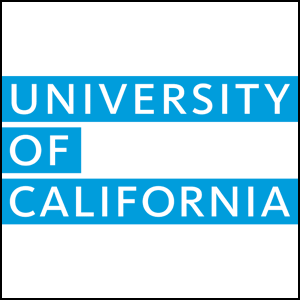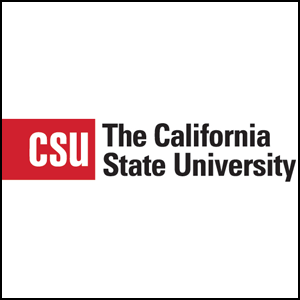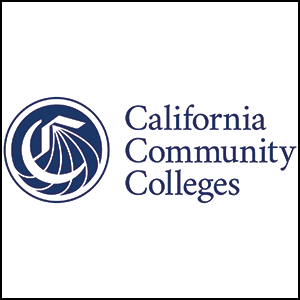Guide Your Education
![]()
Does your major have you musing? Whether you want to declare a major, change a major, or explore careers that relate to a major, there is a lot to discover about your future. Even more than just majors, available minors, academic programs, and specialized certificates at UCSB provide an eclectic mix of options to prepare for your goals.
We've simplified this process down to a few key steps. Use this page to launch into Majors and Beyond, including common outcomes to consider along the way.
Get to Know Your Degree
The Value of a UC Degree
Before learning about academic majors, you must first understand your degree's distinguishing characteristics. As a future candidate for jobs and graduate programs, you will likely compete with candidates with degrees from various institutions. You may want to draw attention to the unique features of your academics.
While you may have heard that UCSB is a top-ranked public institution in the United States, you may not know that UCSB was established as part of a state-wide plan to organize three distinct types of education in California. The California Master Plan of Higher Education was created in 1960 to develop three tiers within the state's public education system, with each level intended to serve a unique purpose:
University of California
California State University
CA Community Colleges
The University of California (UC) is the research wing of the California educational system, with a mission to provide state-of-the-art research alongside teaching as a concurrent goal. UC institutions are officially classified as "Research 1" or "Tier 1," meaning they primarily focus on academic research and theoretical approaches. Educational offerings empower students to produce transferable skills such as analytical thinking, problem-solving, and oral/written communication skills applicable to various industries.
California State University (CSU) is the nation's most extensive and affordable public four-year university system. Educational offerings within the CSU system are often designed to prepare graduates to directly support the state's workforce in industry through programs in agriculture, biotechnology, business administration, hospitality management, nursing, and various other professions.
Nearly 30% of UC and 50% of California State University graduates begin their college experience at a California Community College. This system provides an academic and professional starting point for transferring to a university or earning a degree or certificate.
The Differences Between B.A. and B.S.
Did you know that your degree is not the same as your major? By completing your studies in an undergraduate program at UCSB, you earn a degree (e.g., Bachelor of Arts, Bachelor of Science) within a major area of study (e.g., sociology, biology, art).
It is helpful to understand the educational qualifications required for the types of opportunities you intend to apply to. Most employers and graduate schools do not indicate a preference between applicants who have a Bachelor of Arts (B.A.) versus a Bachelor of Science (B.S.) degree. However, some STEM-related opportunities do indicate a preference. Specifically, options that involve rigorous laboratory work are more likely to prefer a B.S. degree. In contrast, graduate programs in Clinical Healthcare (e.g., Medical School, Dental School, PA School) do not have a degree preference as long as all prerequisite coursework is fulfilled.
For specific majors that offer both a B.A. and B.S. options, the best degree to choose will vary case-by-case basis. If you want to learn more about what degree might be best for you, we encourage you to talk to a Career Services representative through our appointments or drop-in hours.
Learn More
Use our Career Exploration page to get a sense of which type of degree best matches the career opportunities that interest you.
The Value of the Quarter System
Ten weeks to crash a course, plot out the most efficient route to class, and master subject material is a lot to take on. While the quarter system may feel like a never-ending rollercoaster of registration, midterms, and finals, it provides valuable preparation for the ever-changing professional world in the 21st century.
.jpeg)
Studying within the quarter system means you are educated in a fast-paced learning environment that requires a strong work ethic, similar to many workplaces. Staying on top of deadlines requires good organizational skills and planning tools, which prepare you for professional success. The quarter system also presents changing conditions through new coursework, professors, TAs, classmates, lecture halls, and learning styles. This helps you learn how to be agile, resilient, and innovative every few months, which is critical to your career success as markets adapt to evolving technologies, consumer behaviors, regulations and policies, and disruption from new startup companies.
Consider which form of your GPA tells the most helpful story: your Cumulative GPA or your Major GPA. To calculate your Major GPA, enter your major courses into the College of Letters and Science GPA Calculator. Either version can be shared on your resume if you indicate which version you are sharing (unless one is specifically requested in an application).
GPA in Job Searches
For most job searches, GPA is not likely to be requested in an application. However, here are some common scenarios when GPA may be closely evaluated:
- Certain on-campus positions, internship programs, scholarships, and fellowships (e.g., UCDC, some EAP programs)
- Research programs (e.g., NSF REUs)
- Federal government positions
- Positions with elite companies in the Fortune 500 or Fortune 1000
GPA in Graduate School Searches
For most graduate school searches, GPA is very likely to be requested in an application. This is especially the case with graduate programs in Clinical Healthcare (e.g., medical, PA, nursing, dentistry, pharmacology) and other professional schools.
If you are unsure whether graduate school would suit your career goals, review our Grad School 101 page for starter tips.
Final Considerations
Though we have covered some exceptions to this rule, it is often more strategic to graduate with relevant experience, a meaningful network, and solid professional communication skills gained outside of class alongside a respectable GPA than to graduate with no investments made outside of class and a perfect GPA.
Consider your strategies in advance as you plan out your UCSB roadmap.
![icon of lightning bolt]() Take Action: Where to Go From Here
Take Action: Where to Go From Here
Suggested Steps for Success
VIEW VIRTUAL WORKSHOP



